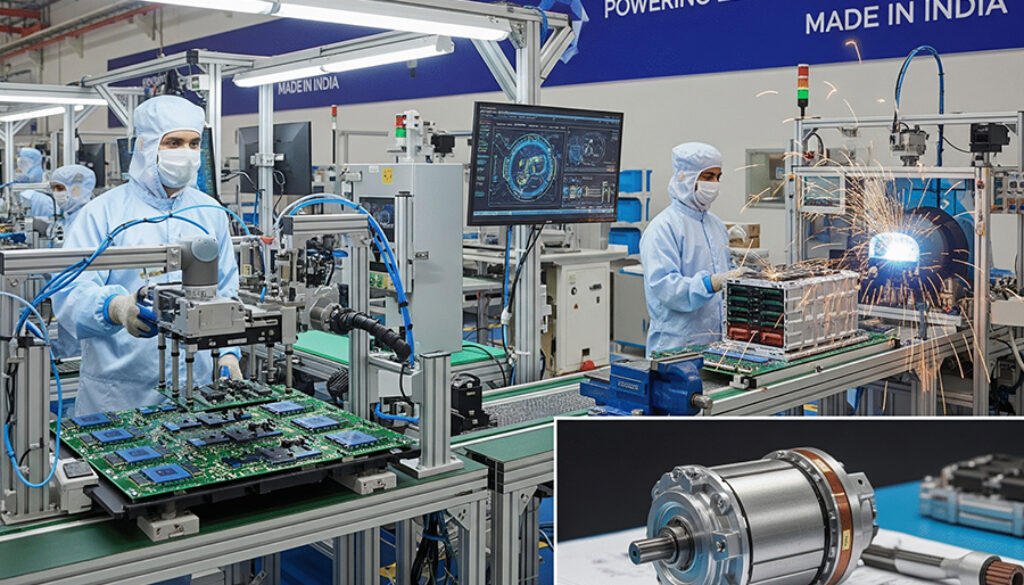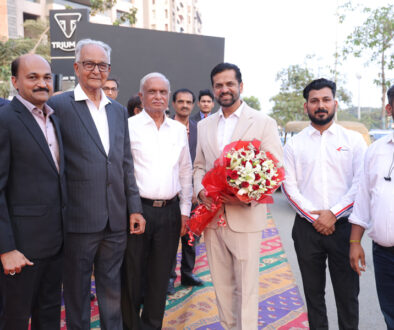Built for the Future: How EV Component Manufacturers Are Powering India’s Electric Mobility Shift
India is quickly shifting gears toward a cleaner, electric future. From fast-moving electric scooters to reliable three-wheelers and expanding commercial EV fleets, the transition is real—and it’s gaining speed.
But behind every EV on the road is a set of carefully engineered components. And it’s here that EV component manufacturers in India are doing some of the most crucial work—often quietly, but always critically.
What Goes Into an EV?
Electric vehicles are nothing like traditional internal combustion engine (ICE) vehicles. Their core architecture is different, and so are the components that power them. These parts are built for high voltage, efficient energy use, and thermal stability.
Key EV Components Manufactured in India:
-
Electric motor housings
-
Battery enclosures and mounts
-
Controller casings and thermal management systems
-
High-voltage connectors and wiring harnesses
-
Lightweight chassis parts
-
Transmission and drive assemblies
-
Regenerative braking system parts
Each of these parts must meet strict standards for safety, precision, and durability. They’re not just parts—they’re the backbone of every electric vehicle.
Why India Is Becoming a Global EV Component Hub
India is emerging as a key player in the global EV component industry. Here’s why:
-
Cost-effective production
-
Skilled labor force in mechanical and precision engineering
-
Government support, including PLI schemes and pro-EV policies
-
High domestic demand, especially for electric two- and three-wheelers
-
Well-established OEM and supply chain ecosystems
These advantages position India not just to serve local markets but to supply global EV manufacturers as well.
How OEMs Like Kinetic Engineering Are Leading the Transition
For companies like Kinetic Engineering Limited (KEL), this shift isn’t sudden. It’s a logical next step in a long journey of innovation and manufacturing excellence.
KEL’s Key EV Adaptation Strategies:
-
Investing in automated, high-precision machining
-
Creating modular assemblies for electric drivetrains
-
Using lightweight materials like aluminum alloys and composites
-
Partnering with startups and global EV firms for co-development and fast prototyping
KEL blends its mechanical legacy with a future-focused mindset. This balance makes it a trusted partner for many in the growing EV ecosystem.
Sustainable Manufacturing with Purpose
EVs may be clean on the road, but making them sustainably matters just as much. Manufacturers in India are taking big steps in this direction.
Here’s how:
-
Reducing material waste through lean production methods
-
Using recyclable materials for casings and brackets
-
Adopting energy-efficient systems, including solar-powered units
-
Aligning with global ESG standards
Localizing EV component production also reduces carbon emissions from imports and enhances supply chain resilience.
Kinetic Engineering: Powering the EV Ecosystem
Kinetic Engineering Limited has always stood for engineering excellence. Today, it continues that tradition by manufacturing precision EV parts that support the industry’s future.
From drivetrain assemblies to sub-components, KEL delivers:
-
High-quality, scalable solutions
-
Fast prototyping and reliable execution
-
Support for two-wheelers, three-wheelers, and light electric commercial vehicles
Whether you’re a startup or a legacy brand, KEL is ready to support your electric journey.
Conclusion: More Than a Shift—A Reinvention
The EV transition is about more than just changing engines—it’s about rethinking how we build, collaborate, and move.
EV component manufacturers in India are playing a central role in this change. By combining cost-efficiency, precision, and sustainability, they’re enabling a smarter, cleaner mobility future.
And with companies like Kinetic Engineering Limited at the forefront, this revolution is not only electric—it’s built to last.




